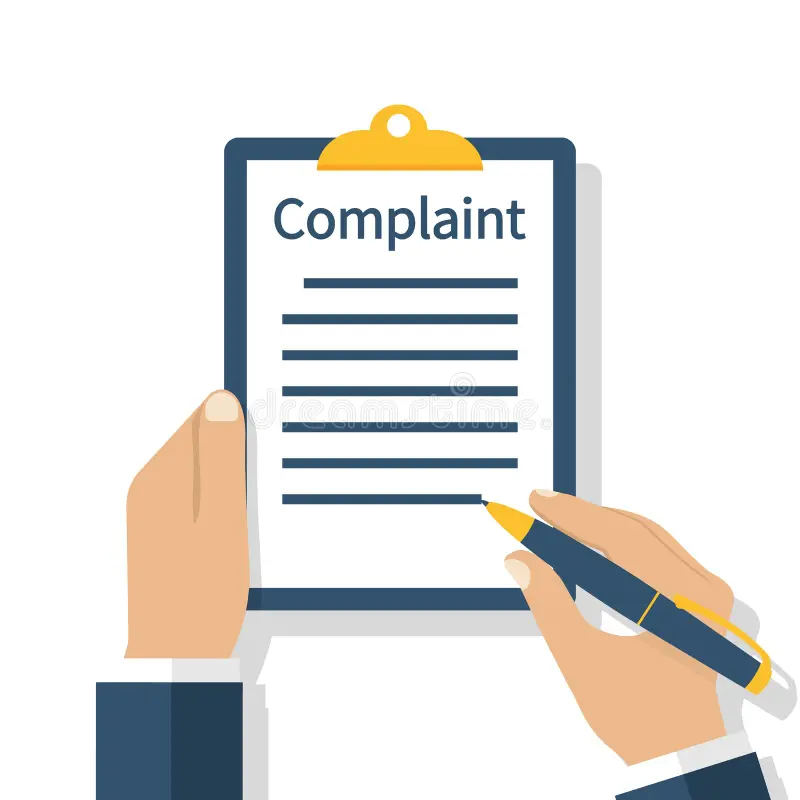
A complaint is the formal legal document filed by a plaintiff to initiate a lawsuit, outlining the claims against the defendant and the relief sought. The complaint serves as the foundation of a civil case, providing the court and the defendant with details about the allegations, legal grounds, and damages requested. Filing a complaint is the first official step in the legal process, marking the beginning of a court’s involvement in resolving a dispute. At 770GoodLaw, we assist clients in crafting clear, thorough complaints that effectively present their claims and support a strong case.
Key Components of a Complaint
A complaint typically includes several essential components that explain the nature of the case and the plaintiff’s demands. Common elements include:
- Caption: The case caption lists the names of the plaintiff(s) and defendant(s), the court where the case is filed, and the case number, which is assigned upon filing.
- Jurisdiction and Venue: This section explains why the chosen court has the authority to hear the case, establishing that it is the appropriate legal venue.
- Statement of Facts: The complaint provides a detailed account of the events or circumstances that led to the plaintiff’s claim, including dates, locations, and relevant actions taken by the defendant.
- Legal Claims or Causes of Action: The complaint lists specific legal claims (e.g., negligence, breach of contract) that form the basis of the lawsuit, explaining why the plaintiff believes the defendant is legally responsible.
- Demand for Relief: This section outlines the relief or damages the plaintiff seeks, which may include monetary compensation, specific actions, or injunctive relief.
- Signature: The complaint is signed by the plaintiff’s attorney or, if the plaintiff is representing themselves, by the plaintiff, certifying that the information provided is accurate and in good faith.
Purpose of Filing a Complaint
Filing a complaint serves multiple essential purposes in the legal process, providing both the court and the defendant with a formal outline of the case. Key purposes include:
-
Initiating the Legal Process: Filing a complaint officially begins the lawsuit, allowing the court to take jurisdiction and setting legal proceedings in motion.
-
Presenting Allegations: The complaint clearly outlines the plaintiff’s claims, specifying the alleged actions or negligence of the defendant.
-
Requesting Relief: By detailing the damages or outcomes sought, the complaint informs the court and defendant of the specific compensation or action the plaintiff believes is warranted.
-
Establishing Legal Grounds: The complaint cites applicable laws or regulations, providing a legal basis for the plaintiff’s claims and the court’s review.
Steps to Take Before Filing a Complaint
Filing a complaint is a critical step that requires careful preparation and legal insight. Important steps to take before filing a complaint include:
- Consulting with an Attorney: Legal counsel can help assess the validity of the case, determine the best course of action, and ensure compliance with legal requirements.
- Gathering Evidence: Collecting evidence, such as documentation, witness statements, and photographs, strengthens the complaint by supporting the plaintiff’s claims.
- Identifying Legal Claims: Determining which legal grounds apply to the case helps structure the complaint and clarify the relief sought.
- Considering Alternative Dispute Resolution: In some cases, parties may consider mediation or negotiation before filing a complaint, potentially resolving the matter outside of court.
Serving the Complaint on the Defendant
After filing, the complaint must be served on the defendant, formally notifying them of the lawsuit. Service of process ensures the defendant has the opportunity to respond and participate in the case. Key aspects of serving the complaint include:
-
Delivery by Authorized Individual: The complaint is typically delivered by a process server, sheriff, or other authorized individual to ensure proper legal notice.
-
Timeframe for Service: Most jurisdictions have specific time limits for serving the complaint, ensuring the case proceeds in a timely manner.
-
Proof of Service: After delivery, a proof of service document is filed with the court, verifying that the defendant has been properly notified.
Defendant’s Response to the Complaint
Once the complaint is served, the defendant has a set timeframe to respond, typically 20 to 30 days. The defendant may respond in several ways:
-
Answer: The defendant can file an answer, responding to each allegation and asserting defenses.
-
Motion to Dismiss: The defendant may file a motion to dismiss, arguing that the complaint is legally insufficient or that the court lacks jurisdiction.
-
Counterclaim: In some cases, the defendant may file a counterclaim, alleging that the plaintiff is actually liable for damages.
How 770GoodLaw Assists Clients in Filing a Complaint
At 770GoodLaw, we work with clients to prepare and file thorough complaints that effectively outline their claims and demands. Our attorneys ensure that the complaint is well-structured, legally sound, and accurately represents the client’s case. Our approach includes:
- Drafting a Detailed Complaint: We carefully draft the complaint, incorporating key details and supporting evidence to present a compelling case.
- Ensuring Compliance with Legal Standards: Our team ensures that the complaint meets all court requirements, from jurisdiction and venue to filing deadlines.
- Guiding Clients Through Service of Process: We handle the service process, ensuring that the defendant is properly notified and that proof of service is filed with the court.
- Preparing for Potential Responses: We prepare for possible responses from the defendant, including motions to dismiss or counterclaims, ensuring our clients are fully supported throughout the case.
Importance of Legal Representation in Filing a Complaint
Filing a complaint requires an understanding of legal standards, procedural requirements, and effective case presentation. Skilled legal representation helps ensure that the complaint is accurate, persuasive, and legally sound, maximizing the likelihood of a favorable outcome. At 770GoodLaw, we provide experienced support for clients filing complaints, helping them navigate the legal process confidently and effectively.
Why Choose 770GoodLaw for Assistance with Complaints
Our commitment to Relentless Reliability and Sincetegrity drives us to provide comprehensive support for clients filing complaints. At 770GoodLaw, we work to ensure that our clients’ claims are presented clearly, accurately, and effectively, setting the foundation for a successful case.






